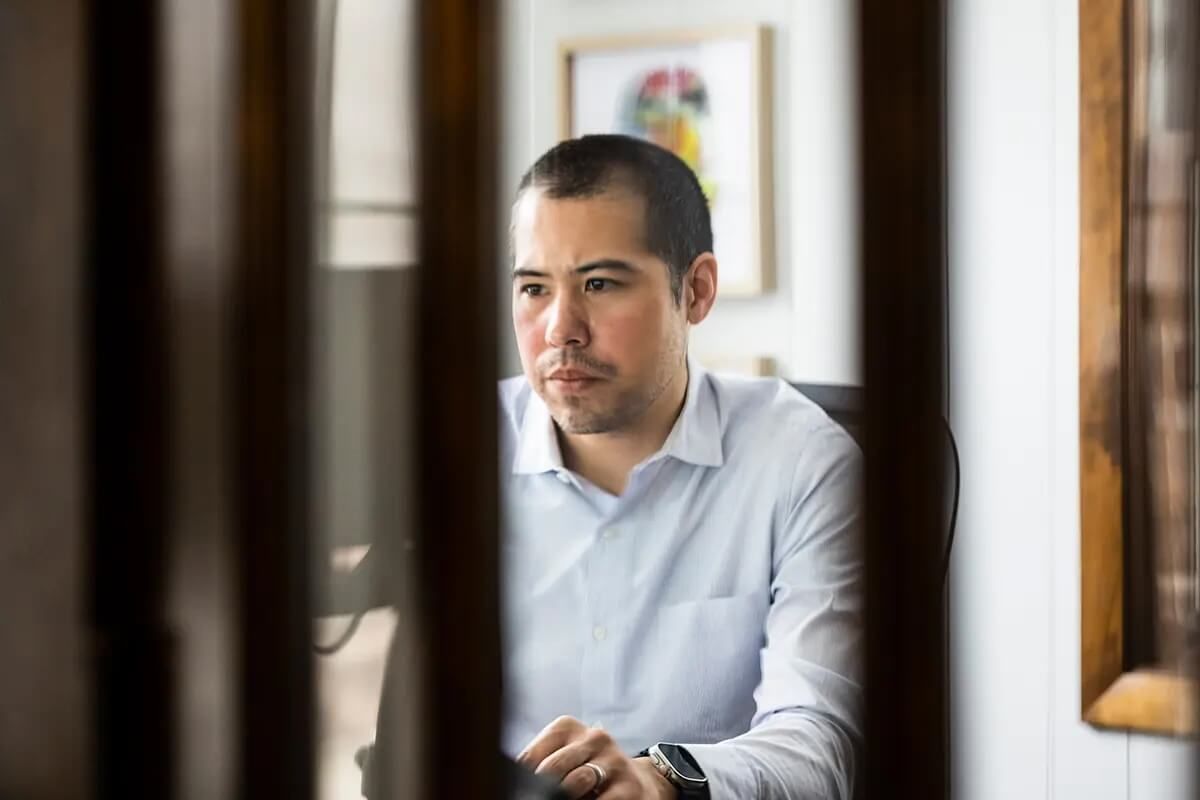For Nate Chin ’06, MD’10, Alzheimer’s is both a personal and professional concern. Professional because he’s the medical director and clinical core co-leader for the UW’s Alzheimer’s Disease Research Center(ADRC); personal because his father died of Alzheimer’s. Combining the two aspects makes him a more effective doctor.
“I will say things in clinic or at public events that perhaps other professionals in my space wouldn’t necessarily feel comfortable saying,” he says. “And that’s because I wear this extra hat of being a son who watched his father live and die with the disease. It gives me a street credibility that I know my patients and community members appreciate. I’m not afraid to talk about the things that are scary because I lived those.”
The perspectives also serve Chin well in his work with the ADRC, where he advocates for current patients while also working to ensure that research produces meaningful results. “My primary role in research is to make sure our participants are safe,” he says, “that [studies are] always clinically relevant and that we are well-trained to collect the data.”
On May 21, 2024, Chin will join The UW Now Livestream for a discussion about Alzheimer’s research and treatment at UW–Madison. Along with fellow UW physicians Sanjay Asthana and Amy Kind ’96, MD’01, PhD’11, he’ll talk about the advances that the UW is making in the effort to understand, prevent, and treat dementia.
My Main Area of Research Is:
As the medical director of our research program, I’m very much involved in the clinical aspects of our work. I have this wonderfully unique role being in both spaces [research and patient care]. I bring research into clinic, and I bring clinic patients and a focus on care into research. And I really love this space — this intersection between clinical care and cutting-edge, frontline research.
Tonight on The UW Now Livestream, I’ll Talk About:
I am going to be talking about biomarkers — getting a blood test and learning if you have the proteins of Alzheimer’s. I’ll transition from biomarkers to the newest therapies available in our clinic. The newest medication approved is called lecanemab, and we are using it in clinic more than most. I will also highlight how our research program has been foundational in validating the biomarker tests used in clinic and sharing those results back to the people wanting that information.
The One Point I Want Viewers to Remember Is:
There is something we can do about Alzheimer’s. [But] the earliest identification of thinking change is critical, not only for the person to understand what’s happening to them, but to science so that we can understand the biology of a disease like Alzheimer’s and then intervene when possible. People should know a healthy lifestyle matters to the brain, and a new era of additional treatment is just around the corner.
To Get Smart Fast, See:
- Dementia Matters: the podcast where we interview the experts and translate it so that people can appreciate it
- The ADRC research website
- The National Institute on Aging website
- The Wisconsin Alzheimer’s Institute
If Concerned about Yourself or a Loved One:
Start with your family and your close friends and ask, “Have you noticed these changes in me? Do you have concerns because I’ve been feeling this way?” Then move on to your primary care provider to express those concerns. And then you have to advocate, because many times it’ll be kicked down the road to another visit, or it gets lost among other health conditions. You really have to prioritize this in particular and say, “No, I really want an evaluation. I don’t need you to tell me if it’s Alzheimer’s or Lewy body disease, but I need to know if my brain is functioning to where it should be.”
